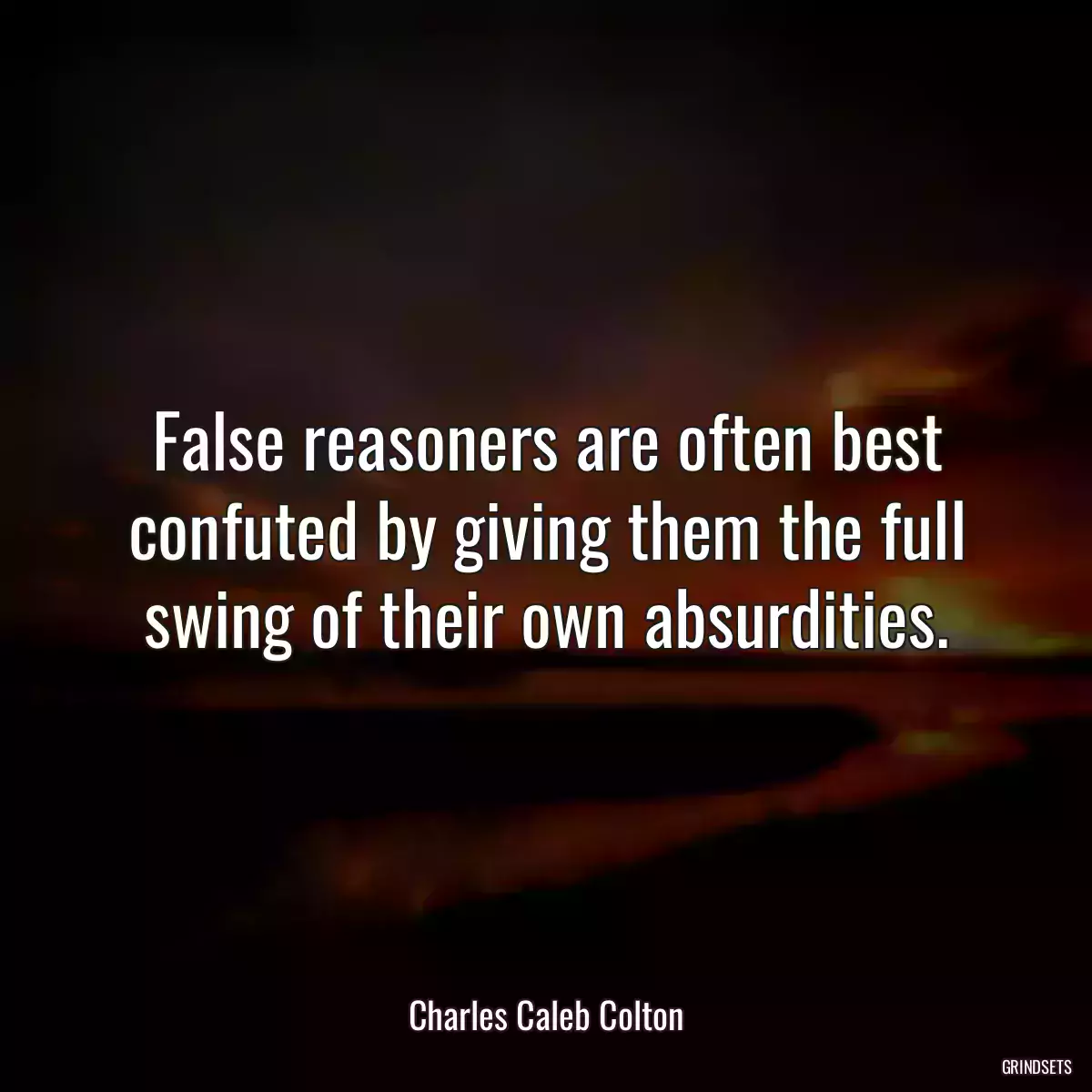
Quotes Charles Caleb Colton
Find dozens of Charles Caleb Colton with images to copy and share.

Man, if he compare himself with all that he can see, is at the zenith of power; but if he compare himself with all that he can conceive, he is at the nadir of weakness.
An Irish man fights before he reasons, a Scotchman reasons before he fights, an Englishman is not particular as to the order of precedence, but will do either to accommodate his customers.
In great cities men are more callous both to the happiness and the misery of others, than in the country; for they are constantly in the habit of seeing both extremes.
You may also like
Men will wrangle for religion, write for it, fight for it, die for it; anything but live for it.
For one man who sincerely pities our misfortunes, there are a thousand who sincerely hate our success.
The excess of our youth are checks written against our age and they are payable with interest thirty years later.
Genius, when employed in works whose tendency it is to demoralize and to degrade us, should be contemplated with abhorrence rather than with admiration; such a monument of its power, may indeed be stamped with immortality, but like the Coliseum at Rome, we deplore its magnificence because we detest the purposes for which it was designed.
Shining outward qualities, although they may excite first-rate expectations, are not unusually found to be the companions of second-rate abilities.

Eloquence, to produce her full effect, should start from the head of the orator, as Pallas from the brain of Jove, completely armed and equipped. Diffidence, therefore, which is so able a mentor to the writer, would prove a dangerous counsellor for the orator.
Many a man may thank his talent for his rank, but no man has ever been able to return the compliment by thanking his rank for his talent.
As there are none so weak that we may venture to injure them with impunity, so there are none so low that they may not at some time be able to repay an obligation. Therefore, what benevolence would dictate, prudence would confirm.
Revenge is a debt, in the paying of which the greatest knave is honest and sincere, and, so far as he is able, punctual.
Some authors write nonsense in a clear style, and others sense in an obscure one; some can reason without being able to persuade, others can persuade without being able to reason; some dive so deep that they descend into darkness, and others soar so high that they give us no light; and some, in a vain attempt to be cutting and dry, give us only that which is cut and dried. We should labor, therefore, to treat with ease of things that are difficult; with familiarity, of things that are novel; and with perspicuity, of things that are profound.
Style is indeed the valet of genius, and an able one too; but as the true gentleman will appear, even in rags, so true genius will shine, even through the coarsest style.
He that dies a martyr proves that he was not a knave, but by no means that he was not a fool; since the most absurd doctrines are not without such evidence as martyrdom can produce. A martyr, therefore, by the mere act of suffering, can prove nothing but his own faith.
No men deserve the title of infidels so little as those to whom it has been usually applied; let any of those who renounce Christianity, write fairly down in a book all the absurdities that they believe instead of it, and they will find that it requires more faith to reject Christianity than to embrace it.
You may also like

A semi-civilized state of society, equally removed from the extremes of barbarity and of refinement, seems to be that particular meridian under which all the reciprocities and gratuities of hospitality do most readily flourish and abound. For it so happens that the ease, the luxury, and the abundance of the highest state of civilization, are as productive of selfishness, as the difficulties, the privations, and the sterilities of he lowest.